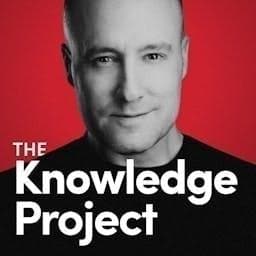In this episode of the Great Leaders UK series, we welcome Emma Maslen, author, angel investor, and founder of inspir'em.
Emma draws on her successful career in large organizations like SAP and BMC to discuss the crucial difference between theoretical playbooks and their real-world, behavioral application. She stresses that the playbook is a framework to drive curiosity and risk mitigation, not a tick-box exercise. Emma also shares why networking is a constant professional necessity, detailing the common mistakes people make and how leaders can intentionally build their networks to gain knowledge and accelerate their careers.
🙌 Thanks to Our Sponsors! PGAI: https://www.getpg.ai Selr: https://selr.ai
🏹 Key Topics Covered
01:40 - What's inspir'em?
03:06 - It's about curiosity, not checklists
04:36 - The flaw of the "100% Med-Pic score"
06:50 - Why the playbook can't be a preach
11:09 - Leaders not present during sales training
12:05 - Verbalizing questions and intentionally
14:13 - Customizing the discovery process
16:48 - Discovery is a Two-Way Dating Process
18:05 - Career Shift from corporate MD
25:37 - The Power of Networking
30:50 - Good vs. Bad Networking
35:51 - Networking for internal success.
41:05 - The value of community
51:37 - The value of coaching
💥 3 Biggest Lessons:
The Playbook is a Framework for Curiosity, Not a Checklist: When Meddic, Med-PICC, or any framework becomes a mere tick-box exercise, it becomes pointless. It should instead function as a tool to continuously drive curiosity, expose risks in your pipeline, and prompt deeper questions.
Winning Requires Leadership Buy-In (Not Dictation): Sales training fails when executives and leaders see it as something "done to the sales team," often not even attending the training themselves. Successful adoption requires the playbook to be a dialogue driven by empathy and shared accountability.
Networking is a Professional Must (Not Just a Job Hunt): Many people only realize they have a networking problem when they desperately need a new job or advice. Good networking is about proactive investment: focusing on who you can help, giving back to the network, and making small, specific asks to gain knowledge, not just taking.
💬 Notable Quotes "There are still a lot of organizations out there that think Meddpicc is something to be done to the sales team." "If it's become a tick box exercise, you might as well just get rid of it because it becomes pointless." "It should be a framework to drive curiosity." "People feel like networking is about finding another job rather than being better at your current job." "I once said to him, why are you mentoring me because I'm like here and you're here and he said, because you've got a whole different perspective."
🙌 Thanks for listening! This episode was hosted by Simon Kouttis and Ollie Kuehne, founders of Hunters & Unicorns, and post-produced by the team at videoforce.pro. If you enjoyed this episode, please drop a like/share and subscribe to our channel!
🦄 Connect with Hunters & Unicorns
Website: http://huntersandunicorns.com
Twitter: / huntersun1corns
Instagram: / huntersandunicorns
Blog: http://huntersandunicorns.com/blog
#softwaresales #huntersandunicorns #playbookuniverse




































